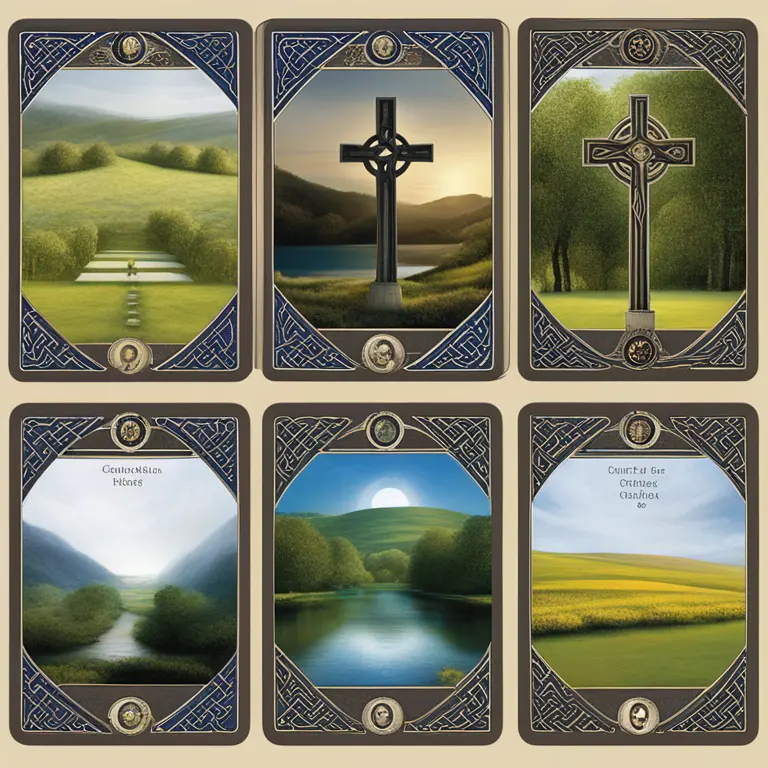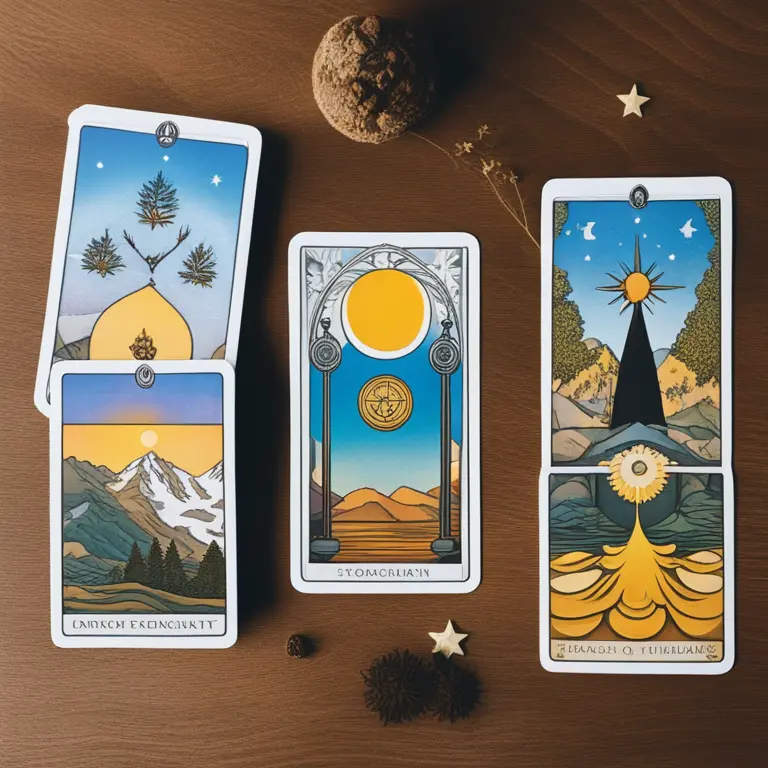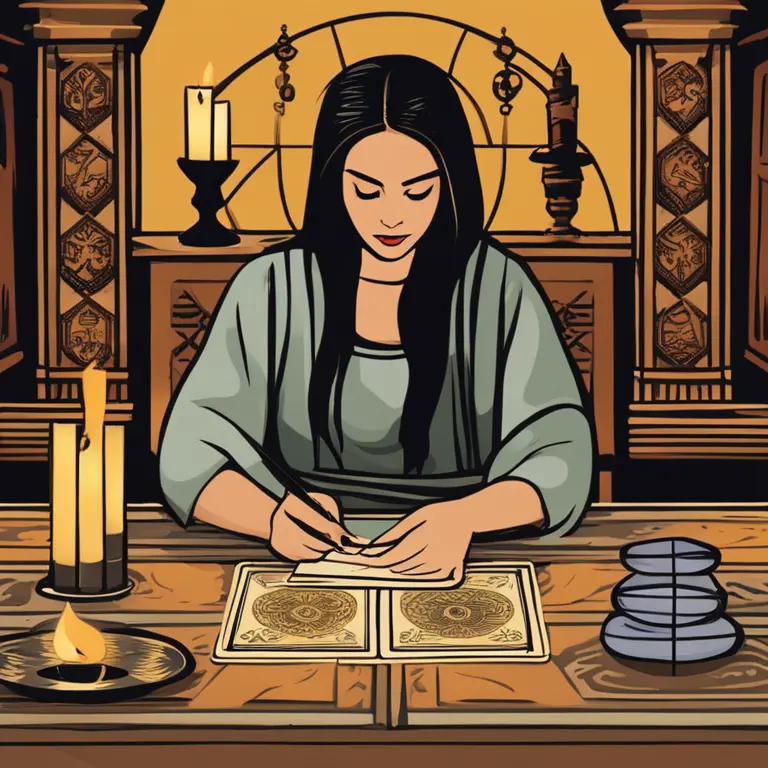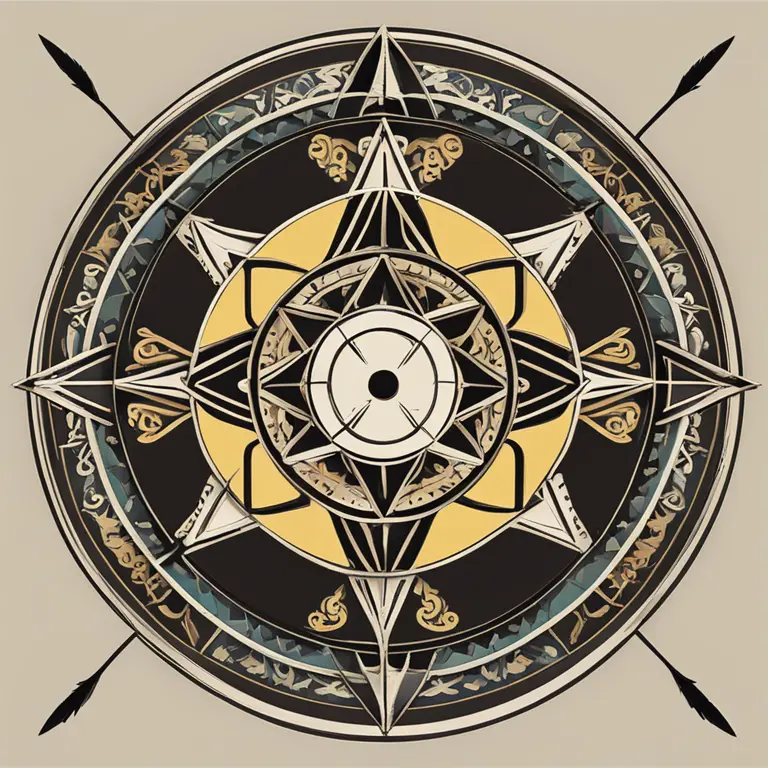
The Essence of Tarot
To begin understanding how tarot cards work, one must first recognize tarot as a deck comprised of 78 cards, each holding its unique imagery, symbolism, and story. The tarot deck is divided into two main sections: the Major Arcana and the Minor Arcana. With 22 Major Arcana cards, they represent life’s karmic and spiritual lessons, and the 56 Minor Arcana cards reflect the trials and tribulations of daily life. The workings of tarot involve a blend of intuition, familiarity with the cards' meanings, and the belief in a synchronistic universe where nothing happens by mere chance.

Symbols Speak Volumes
Each tarot card is rich with symbols that are designed to speak to the subconscious mind. When a reader lays out the cards, they see a narrative unfolding within the images and symbols, telling a story that is relevant to the seeker’s situation or question. A tarot card's colors, numbers, objects, and characters all hold specific meanings that contribute to the overall interpretation. The art of tarot reading lies in piecing together these symbols to derive a coherent message or guidance.

Preparing for a Reading
A tarot reading begins long before the cards are spread on the table. The reader typically clears their deck and space of any previous energies, often through a ritual, to ensure the reading is not influenced by any residual questions or concerns. Shuffling the cards while focusing on the question or the person seeking guidance is believed to energetically charge the deck with the query at hand, thus "programming" the cards to respond to that specific subject or individual.

The Tarot Spread
How the cards are laid out—or the "spread"—also defines the reading's context. There are numerous types of spreads, each suited to different kinds of questions. The classic Celtic Cross, for instance, offers a comprehensive view of the seeker's current situation, while a simple three-card spread can provide a snapshot of past, present, and future influences. The reader interprets the cards based on their positions and relationships to one another within the spread.

The Role of Intuition
Critical to a tarot reading is the reader’s intuition. While book meanings can offer a foundation, the cards come to life through the reader's intuition, making each reading unique. Intuitive interpretation allows a deeper dive into the seeker’s personal experiences, thoughts, and emotions and can reveal subconscious aspects that might not be immediately apparent.
Answers and Insights
Tarot does not predict the future with certainty; rather, it offers insight and reflection. A reading can highlight potential outcomes and examine influences surrounding a situation. This introspective tool guides seekers toward making informed decisions that shape their future based on present actions. As the readers relay the cards' messages, it is the seeker's free will to harness this knowledge and chart their course accordingly.
Staying Current and Relevant
When relating tarot readings to astrological forecasts and horoscopes, especially from 2024 onward, the reader must stay attuned to contemporary astrological alignments and cosmic shifts. Astrological influences can deeply affect a person's energy, which in turn can be reflected in the tarot reading. Understanding the individual’s astrological context provides a more nuanced and targeted interpretation that resonates with the energies of the time.
Published: 1/17/2024
Modified: 1/17/2024
More predictions
Come back here soon to learn more about yourself and your future


The Astrology Houses Full Guide
Discover the significance of astrology houses and their connections to different life stages through our comprehensive age guide.


Top Astrological Houses for Personal Insight
Discover how the best houses in astrology provide deep personal insights and influence key areas of your life in this comprehensive guide.


A Guide to Astrological Houses and Their Meanings
Delve into the classifications of astrological houses and discover the influences they hold over various aspects of life.